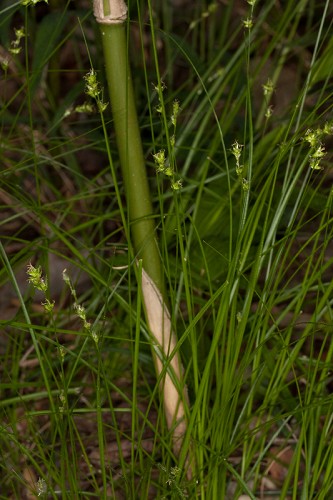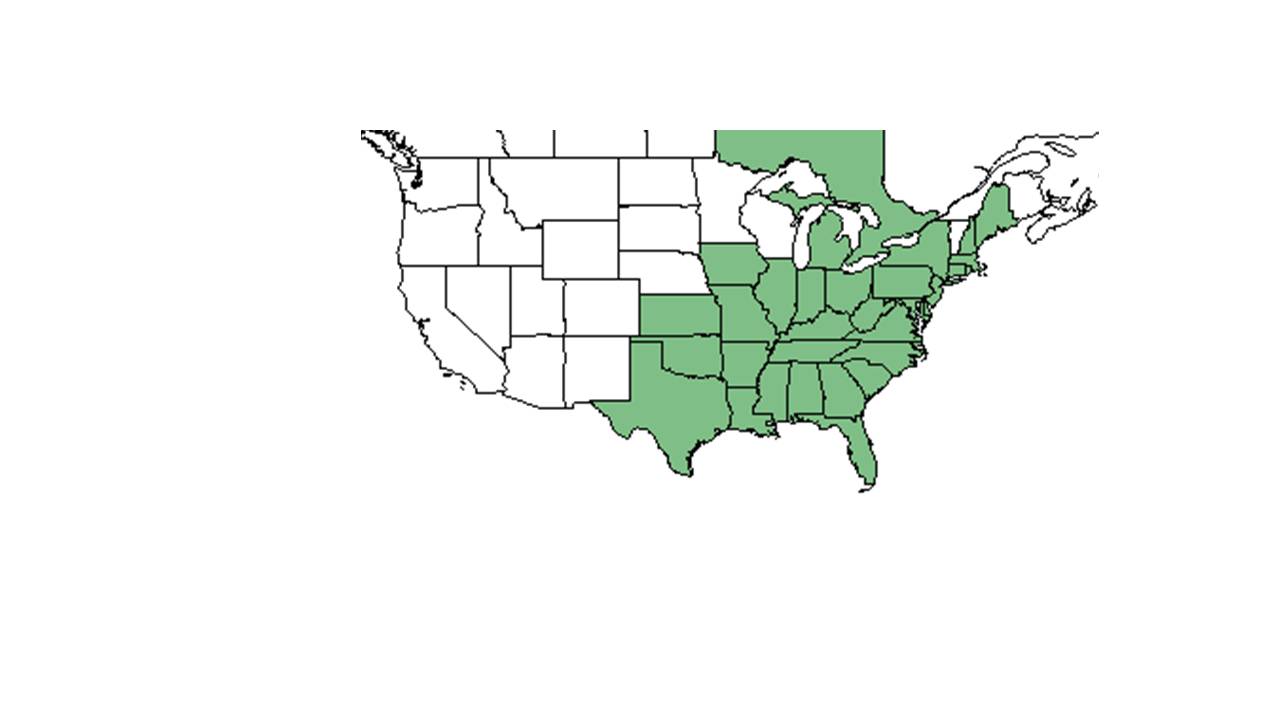Difference between revisions of "Carex retroflexa"
KatieMccoy (talk | contribs) |
KatieMccoy (talk | contribs) |
||
| Line 34: | Line 34: | ||
===Phenology===<!--Timing off flowering, fruiting, seed dispersal, and environmental triggers. Cite PanFlora website if appropriate: http://www.gilnelson.com/PanFlora/ --> | ===Phenology===<!--Timing off flowering, fruiting, seed dispersal, and environmental triggers. Cite PanFlora website if appropriate: http://www.gilnelson.com/PanFlora/ --> | ||
| − | This species has been observed flowering in May and fruiting from March to May | + | This species has been observed flowering in May and fruiting from March to May<ref name="fsu"/>. |
<!--===Seed dispersal===--> | <!--===Seed dispersal===--> | ||
| Line 42: | Line 42: | ||
<!--===Use by animals===--><!--Herbivory, granivory, insect hosting, etc.--> | <!--===Use by animals===--><!--Herbivory, granivory, insect hosting, etc.--> | ||
<!--===Diseases and parasites===--> | <!--===Diseases and parasites===--> | ||
| + | |||
==Conservation and Management== | ==Conservation and Management== | ||
==Cultivation and restoration== | ==Cultivation and restoration== | ||
Revision as of 09:36, 5 April 2016
| Carex retroflexa | |
|---|---|

| |
| Photo by John R. Gwaltney, Southeastern Flora.com | |
| Scientific classification | |
| Kingdom: | Plantae |
| Division: | Magnoliophyta - Flowering plants |
| Class: | Liliopsida – Monocotyledons |
| Order: | Cyperales |
| Family: | Cyperaceae |
| Genus: | Carex |
| Species: | C. retroflexa |
| Binomial name | |
| Carex retroflexa Muhl. ex Willd. | |

| |
| Natural range of Carex retroflexa from USDA NRCS Plants Database. | |
Common name: reflexed sedge
Contents
Taxonomic notes
Synonyms: Carex retroflexa var. retroflexa; C. retroflexa Muhlenberg ex Willdenow, var. texensis (Torrey ex L. H. Bailey) Fernald
Description
A description of Carex retroflexa is provided in The Flora of North America.
Distribution
Ecology
Habitat
This species has been found along rivers in rich deciduous woods and in floodplains surrounded by wet sphagnum moss. It has also been observed growing alongside trails at the edge of woodlands. It does well in partial to deep shade environments in drying sandy loam of floodplains[1].
Associated species include Carex albolutescens, Carex atlantica, Carex complanata, Carex lurida, Carex venusta. C. capillacea and sphagnum species[1].
Phenology
This species has been observed flowering in May and fruiting from March to May[1].
Conservation and Management
Cultivation and restoration
Photo Gallery
References and notes
Florida State University Robert K. Godfrey Herbarium database. URL: http://herbarium.bio.fsu.edu. Last accessed: June 2014. Collectors: L. C. Anderson, L. W. Curtis, and R. K. Godfrey. States and Counties: Alabama: Wilcox. Florida: Gadsden and Hernando.
- ↑ 1.0 1.1 1.2 Florida State University Robert K. Godfrey Herbarium database. URL: http://herbarium.bio.fsu.edu. Last accessed: June 2014. Collectors: L. C. Anderson, L. W. Curtis, and R. K. Godfrey. States and Counties: Alabama: Wilcox. Florida: Gadsden and Hernando.